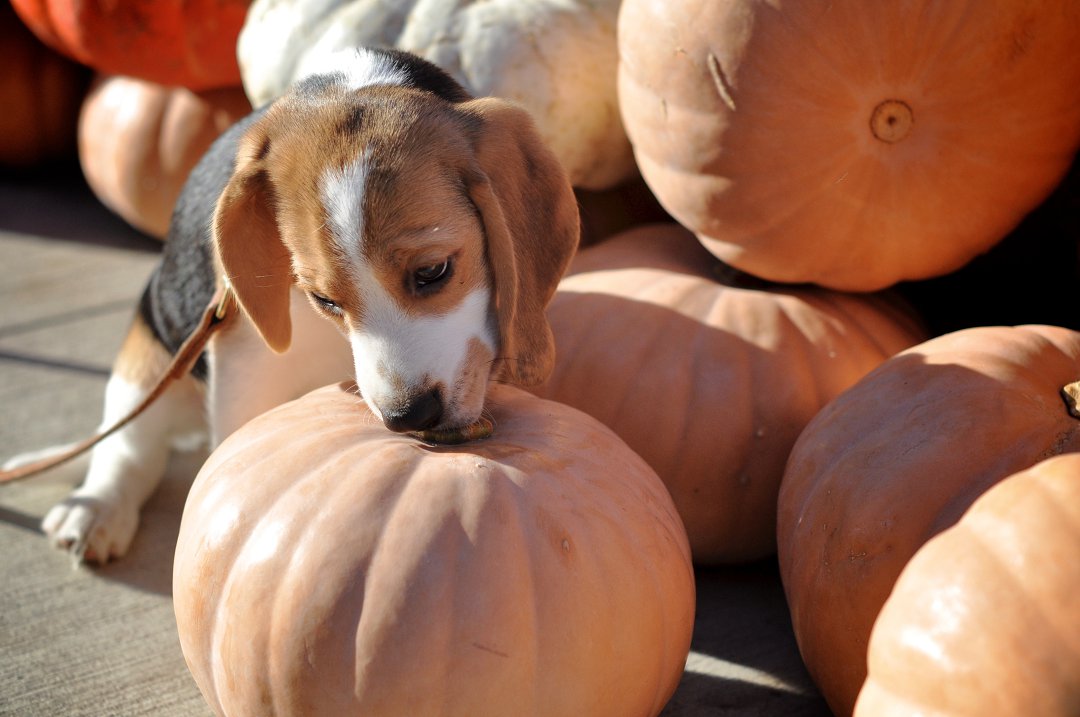Table of Contents
- 1 Introduction: Essential Health Tips for Your Aging Beagle Companion
- 2 Tailoring the Perfect Diet for Your Elderly Beagle: A Comprehensive Guide
- 3 Unleashing the Best Exercise Routine for Your Aging Beagle’s Well-being
- 4 FAQs About: How to Care for an Elderly Beagle
- 4.1 What are some important aspects of elderly beagle care?
- 4.2 How can I adjust my elderly beagle’s diet to meet their nutritional needs?
- 4.3 How can I design an exercise routine that suits my aging beagle?
- 4.4 Are there any specific grooming tips for an elderly beagle?
- 4.5 How can I ensure my elderly beagle’s joint health?
- 4.6 What are some signs that indicate my elderly beagle may need veterinary care?
Introduction: Essential Health Tips for Your Aging Beagle Companion
Are you the proud owner of an aging beagle? As your loyal furry friend grows older, it’s important to provide them with the care and attention they need to live a happy and healthy life. In this comprehensive guide, we will explore the essential health tips that every owner should know when it comes to caring for an elderly beagle. From tailoring the perfect diet to finding the best exercise routine, we’ll cover all aspects of their well-being. So, if you’re ready to ensure your beloved companion enjoys their golden years to the fullest, keep reading to discover how to care for an elderly beagle.
Caring for an elderly beagle requires a holistic approach that encompasses their physical, mental, and emotional well-being. One of the key aspects of providing the best care is tailoring their diet to meet their specific nutritional needs. As beagles age, their metabolism slows down, making weight management crucial. We’ll delve into the importance of a balanced diet, including the right nutrients and portion control, to help your aging beagle maintain a healthy weight. Additionally, we’ll discuss the significance of senior beagle care, such as grooming, dental care, and mental stimulation, to ensure their overall health and happiness. But first, let’s start with the foundation of their well-being: nutrition.
Tailoring the Perfect Diet for Your Elderly Beagle: A Comprehensive Guide
As your beagle companion ages, their dietary needs change. It’s important to provide them with a balanced and nutritious diet to support their overall health and well-being. Here are some essential tips on how to care for an elderly beagle through proper nutrition:
1. Consult with a Veterinarian
Before making any changes to your beagle’s diet, it’s crucial to consult with a veterinarian. They can assess your dog’s specific needs and provide tailored recommendations based on their age, weight, and any existing health conditions.
2. Choose High-Quality Senior Dog Food
Senior beagles require a diet that is lower in calories and fat to prevent obesity and maintain a healthy weight. Look for high-quality senior dog food that is specifically formulated for older dogs. These foods often contain added nutrients such as glucosamine and chondroitin to support joint health.
3. Consider Special Dietary Needs
If your elderly beagle has specific health issues, such as allergies or joint problems, you may need to consider special dietary options. Grain-free or hypoallergenic dog food can be beneficial for dogs with food sensitivities, while joint support formulas can help alleviate arthritis symptoms.
4. Provide Fresh and Balanced Meals
Ensure that your beagle’s diet includes a balance of protein, carbohydrates, and healthy fats. Include lean meats, such as chicken or turkey, whole grains like brown rice or quinoa, and a variety of fruits and vegetables. Avoid feeding them table scraps or unhealthy treats that can lead to weight gain or digestive issues.
5. Monitor Portion Sizes
As beagles age, their metabolism slows down, making them more prone to weight gain. Be mindful of portion sizes and adjust them accordingly. Your veterinarian can guide you on the appropriate amount of food to feed your elderly beagle based on their size and activity level.
6. Provide Fresh Water and Regular Meal Times
Make sure your beagle has access to fresh water at all times. Establish regular meal times to help regulate their digestion and prevent overeating. Avoid free-feeding, as it can contribute to weight gain.
By tailoring the perfect diet for your elderly beagle, you can ensure they receive the nutrition they need to stay healthy and happy in their golden years. Remember to consult with a veterinarian, choose high-quality senior dog food, consider special dietary needs, provide balanced meals, monitor portion sizes, and establish regular meal times. In the next section, we will explore the best exercise routine for your aging beagle’s well-being.
Unleashing the Best Exercise Routine for Your Aging Beagle’s Well-being
As your beagle ages, it’s important to adjust their exercise routine to accommodate their changing needs. Regular exercise not only helps maintain their physical health but also keeps them mentally stimulated and emotionally balanced. Here are some essential tips on how to care for an elderly beagle and tailor the perfect exercise routine for them:
1. Consult your veterinarian
Before starting any new exercise routine, it’s crucial to consult your veterinarian. They can assess your beagle’s overall health and provide specific recommendations based on their age, weight, and any existing health conditions. This will ensure that you choose the right exercises that are safe and beneficial for your furry friend.
2. Low-impact exercises
As beagles age, their joints become more susceptible to arthritis and other joint-related issues. Opt for low-impact exercises that are gentle on their joints, such as:
- Walking: Regular walks are a great way to keep your beagle active without putting too much stress on their joints. Start with shorter walks and gradually increase the duration as they build stamina.
- Swimming: If your beagle enjoys water, swimming is an excellent low-impact exercise that provides a full-body workout without straining their joints.
3. Mental stimulation
In addition to physical exercise, it’s important to provide mental stimulation for your aging beagle. Mental exercises can help keep their mind sharp and prevent cognitive decline. Here are a few ideas:
- Puzzle toys: Invest in interactive puzzle toys that challenge your beagle’s problem-solving skills and keep them mentally engaged.
- Scent games: Beagles have a keen sense of smell, so hiding treats or toys around the house or in the yard can provide mental stimulation while tapping into their natural instincts.
4. Regular playtime
Playtime is essential for your beagle’s overall well-being, regardless of their age. Incorporate short play sessions into their daily routine to keep them active and happy. Use toys that are appropriate for their age and physical abilities, such as soft toys or puzzle balls.
5. Monitoring their energy levels
Pay close attention to your beagle’s energy levels during and after exercise. If they seem excessively tired or show signs of discomfort, it may be a sign that you need to adjust the intensity or duration of their exercise routine. Always prioritize their comfort and well-being.
By following these tips on how to care for an elderly beagle and tailoring the perfect exercise routine, you can ensure that your furry companion enjoys a healthy and fulfilling life in their golden years. Remember to consult your veterinarian for personalized advice and make adjustments as needed to meet your beagle’s specific needs.
FAQs About: How to Care for an Elderly Beagle
What are some important aspects of elderly beagle care?
- Regular veterinary check-ups are crucial for maintaining your elderly beagle’s health and detecting any potential issues early on.
- Providing a balanced diet with appropriate nutrition and portion control is essential for their overall well-being.
- Regular exercise, tailored to their age and physical abilities, helps keep their joints mobile and maintains a healthy weight.
- Grooming, including dental care, eye care, and ear cleaning, ensures their hygiene and prevents common health problems.
- Mental stimulation through interactive toys and puzzles helps keep their mind sharp and prevents boredom.
How can I adjust my elderly beagle’s diet to meet their nutritional needs?
- Consult with your veterinarian to determine the specific dietary requirements of your elderly beagle, considering factors such as weight, activity level, and any health conditions.
- Choose high-quality senior dog food that is specifically formulated for aging dogs, as it usually contains lower calories and higher levels of joint-supporting nutrients.
- Consider adding supplements like glucosamine or omega-3 fatty acids to support joint health, but only under the guidance of your vet.
- Divide their meals into smaller, more frequent portions to aid digestion and prevent overeating.
- Provide fresh water at all times and monitor their hydration levels, as older dogs may become more prone to dehydration.
How can I design an exercise routine that suits my aging beagle?
- Begin by consulting your veterinarian to assess your beagle’s physical condition and any limitations they may have.
- Focus on low-impact exercises such as gentle walks, swimming, or controlled playtime to avoid putting excessive strain on their joints.
- Adjust the duration and intensity of exercise based on your beagle’s energy level and comfort.
- Incorporate mental stimulation activities, such as puzzle toys or scent games, to keep their mind engaged and prevent cognitive decline.
- Pay attention to any signs of fatigue or discomfort during exercise and modify the routine accordingly.
Are there any specific grooming tips for an elderly beagle?
- Regularly brush your beagle’s coat to remove loose fur and prevent matting, which can cause skin issues.
- Trim their nails regularly to prevent overgrowth and discomfort while walking.
- Clean their ears gently with a veterinarian-approved ear cleaner to prevent infections.
- Brush their teeth regularly using a dog-specific toothbrush and toothpaste to maintain good dental hygiene.
- Monitor their eyes for any signs of redness, discharge, or cloudiness, and consult your vet if you notice any abnormalities.
How can I ensure my elderly beagle’s joint health?
- Provide a comfortable and supportive bed or resting area to alleviate pressure on their joints.
- Consider using joint supplements, as recommended by your veterinarian, to support their joint health and mobility.
- Avoid excessive jumping or stair climbing, as these activities can strain their joints.
- Maintain a healthy weight for your beagle, as excess weight can put additional stress on their joints.
- Provide gentle exercise routines that promote joint flexibility and muscle strength.
What are some signs that indicate my elderly beagle may need veterinary care?
- Difficulty in walking, climbing stairs, or getting up from lying down may indicate joint pain or mobility issues.
- Changes in appetite, weight loss, or excessive thirst could be signs of underlying health problems.
- Increased lethargy, decreased activity level, or disinterest in previously enjoyed activities may indicate pain or discomfort.
- Persistent bad breath, red or swollen gums, or difficulty eating may suggest dental issues.
- Changes in vision, such as cloudiness or bumping into objects, may indicate the need for an eye examination by a veterinarian.






Leave a Reply